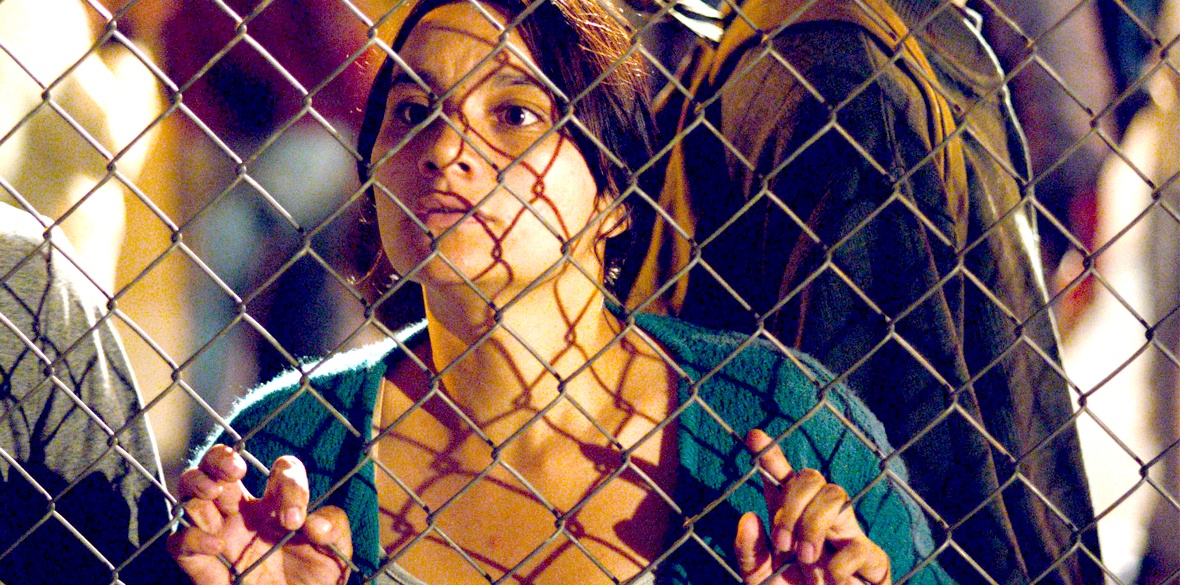This is the last article you can read this month
You can read more article this month
You can read more articles this month
Sorry your limit is up for this month
Reset on:
Please help support the Morning Star by subscribing here
A CANNES Film Festival which, it was hoped, would spark a global comeback for the film industry was instead beset with all the contemporary contradictions as the global crisis outran the global comeback.
First prize went to Titane, a film drenched in treachery, gender-bending decadence and automobile fetish — Black Swan meets Fast and Furious.
Spike Lee let the cat out of the bag, inadvertently announcing the winner at the beginning of the awards ceremony, but that was the least of the problems for the French film industry.
The festival was essentially ruled by the French cinema owners, who three years ago threatened to fire its director Thierry Fremaux if he ever again allowed a streaming service entry in the main competition.
It was all about promotion of French cinema, as many film-makers elected to delay the release of their films one year to take advantage of the Cannes promotional lift.
But French President Emmanuel Macron announced midway through the festival that because of the rapidly increasing Covid cases due to the Delta strain, on the Wednesday after the festival ends no cinema could house more than 50 spectators.
So, the Cannes “new normal” was disrupted by corporate forces which the festival nominally stands above in its validation of art over commerce.
French director Cyril Dion’s Animal raises this point. An elegantly photographed tour of the planetary destruction caused by climate change, it has two teens joining in a “picking-up-plastic” campaign on the beaches of Mumbai and observing shrinking nature in the wilds of Kenya.
Dion told the press that if individual initiative, which the film validates, were completely successful, this would only eliminate 24 per cent of greenhouse gases.
On a rabbit farm, the two are told that the animals are raised humanely and it’s only at the end of the visit that the issue is raised whether this treatment is only a precursor to slaughtering them later.
Protest is the theme of Revolution of Our Times, a documentary validating the often violent student actions backed by the West as a toehold in the developing new cold war against a China which has dared challenge those powers for economic parity.
But authentic protest is the theme of Amparo, a touching fiction set in the Colombian city of Medellin in the 1990s.
It’s about a mother’s journey and humiliation as she attempts to free her son who has been shanghaied into the Colombian army to be sent to the most dangerous war zone.
Oliver Stone marked a different 30-year anniversary in his JFK Revisited: Through the Looking Glass, a documentary sequel to JFK.
It contains unredacted additional evidence from the Warren Commission report, giving increased credence to the film’s thesis that JFK was assassinated not by a lone gunman but most likely by CIA and ex-CIA members.
After Kennedy’s failure to back the Bay of Pigs Cuba invasion, they then launched their ultimate dirty tricks operation.
Kennedy scholars contend that the president was actively engaged in a global peace movement and, Stone claims, in withdrawing the US from Vietnam, “conspiracy theory” was converted into “conspiracy fact.”
Ukrainian director Sergei Loznitsa’s Babi Yar Context, an astute assembly of footage from German and Russian archives, tells the story of the Nazi invasion of the Ukraine and most particularly of the murder of over 33,000 Jews and the burying of their bodies in the Babi Yar ravine outside Kiev.
In 1944, as the Russians approached, the Nazis ordered Ukrainians — who they then shot — to dig up the bodies and burn them to hide the evidence of their crimes.
This evidence emerges in the Soviet version of the Nuremberg Trials, held two years before those in the West, which contained testimony by a Ukrainian who miraculously survived and an SS machine-gunner who participated in the slaughter.
It is a fascinating confrontation of brutal realities which were often glossed over in the festival.
DENNIS BROE









